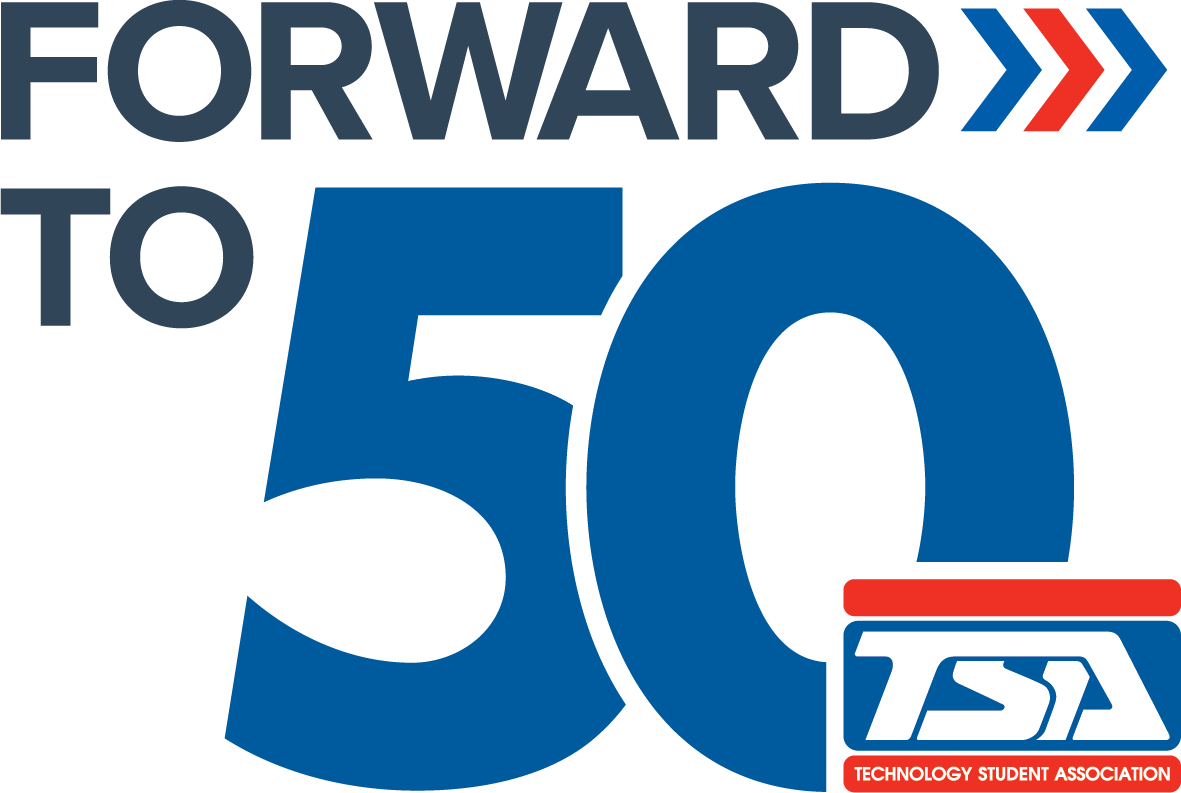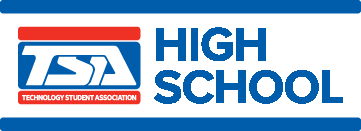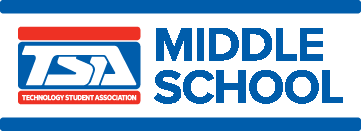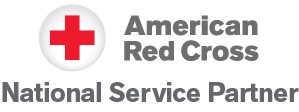REASONS TO JOIN TSA
- STEM competitions
- Career and technical skills development
- Leadership opportunities
- Local, regional, state, and national conferences
- Achievement Program
- Networking with members and industry professionals
- Scholarships and awards
- FUN!
COMPETITIONS
I am interested in competitions for...
High School
Middle School
Children's Stories
In response to the annual theme, participants create an illustrated children’s story of artistic, instructional, and social value, and submit documentation related to the development of the physical storybook. Semifinalists read their story aloud and participate in an interview.
Coding
Participants take a test, which concentrates on aspects of coding, to qualify for the semifinal round of competition. Semifinalists develop a software program – in a designated amount of time – that accurately addresses an onsite problem.
Computer-Aided Design (CAD), Architecture
Participants use complex computer graphic skills, tools, and processes to respond to a design challenge in which they develop representations of architectural subjects, such as foundation and/or floor plans, and/or elevation drawings, and/or details of architectural ornamentation or cabinetry. The solution to the design challenge and participant answers in an interview are evaluated.
Computer-Aided Design (CAD), Engineering
Participants use complex computer graphic skills, tools, and processes to respond to a design challenge in which they develop three-dimensional representations of engineering subjects, such as a machine part, tool, device, or manufactured product. The solution to the design challenge and participant answers in an interview are evaluated.
Data Science and Analytics
Participants identify a societal issue, collect or compile data from various sources about the issue, and then produce documentation and a digital scientific poster about their findings. Semifinalists create a synopsis and digital visual representation of a data set provided in an onsite challenge.
Debating Technological Issues
Participants research the annual topic and subtopics and prepare for a debate against a team from another chapter. Teams are instructed to take either the pro or con side of a selected subtopic, submit a summary of references, and use their research to support their assigned position. The quality of a team’s debate determines semifinalists and finalists.
Biotechnology
To address the annual theme, participants select a contemporary biotechnology issue and demonstrate understanding of the topic through their documented research and an original display. Semifinalists participate in an interview.
Forensic Technology
Participants take a test of basic forensic science theory to qualify for the semifinal round of competition. Semifinalists participate in an onsite forensic skills demonstration.
Medical Technology
Participants conduct research on a contemporary medical technology issue related to the annual theme, document their research, create a display, and build a prototype. Semifinalists deliver a presentation about their entry and participate in an interview.
System Control Technology
In response to a challenge presented onsite at the conference, participants analyze a problem (typically one in an industrial setting), build and program a computer-controlled mechanical model to solve the problem, explain the program and the features of the mechanical model solution, and provide instructions for evaluators to operate the device.
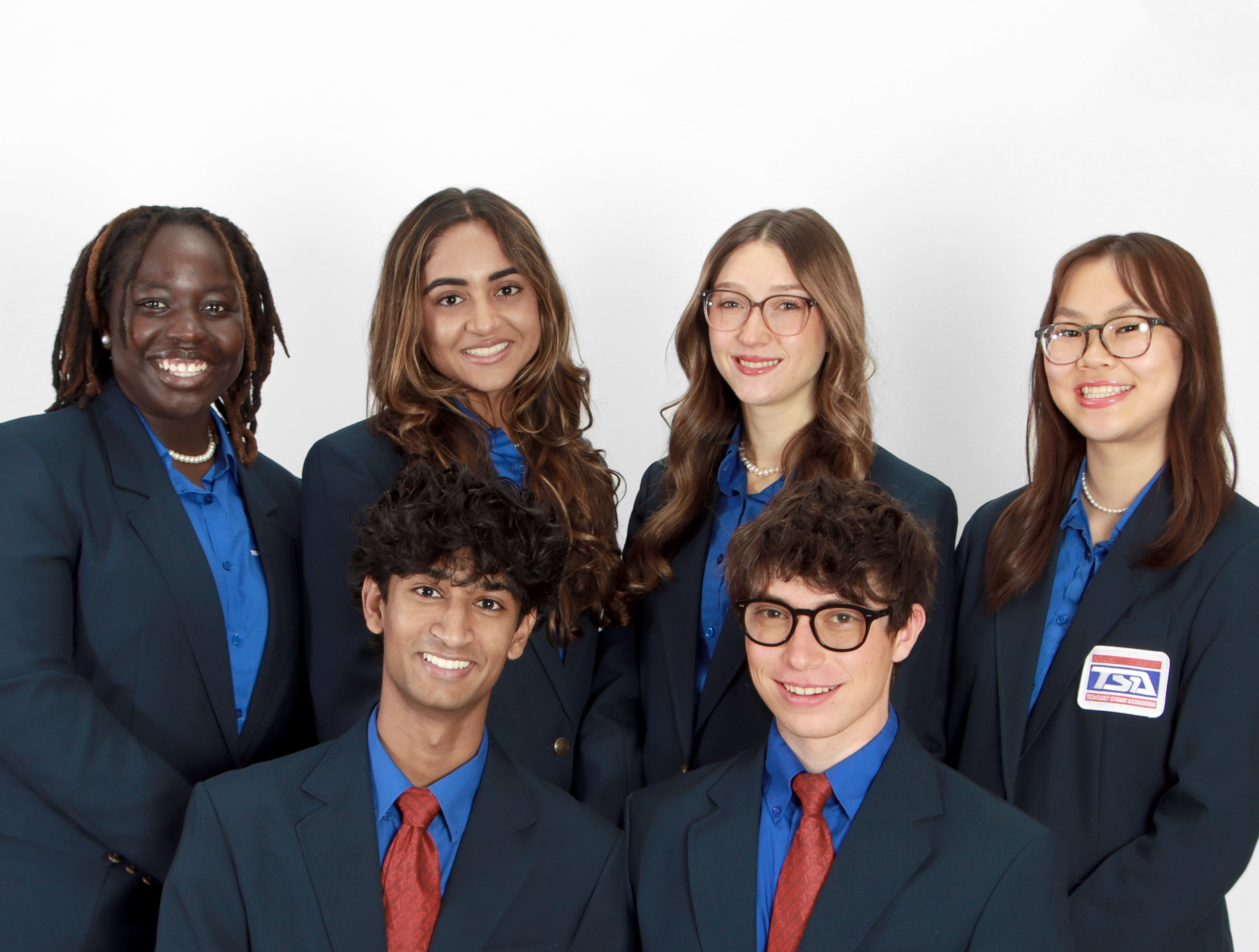
LEADERSHIP
RESOURCES
Affiliated TSA members have access to resources to help enrich their TSA experience. Some highlights include:
PROGRAMS & INITIATIVES
- Forward to Fifty (F2F)
- Awards and Scholarships
- Leadership Program
- National Service Project
- TSA Achievement Program, Pathways to Excellence

